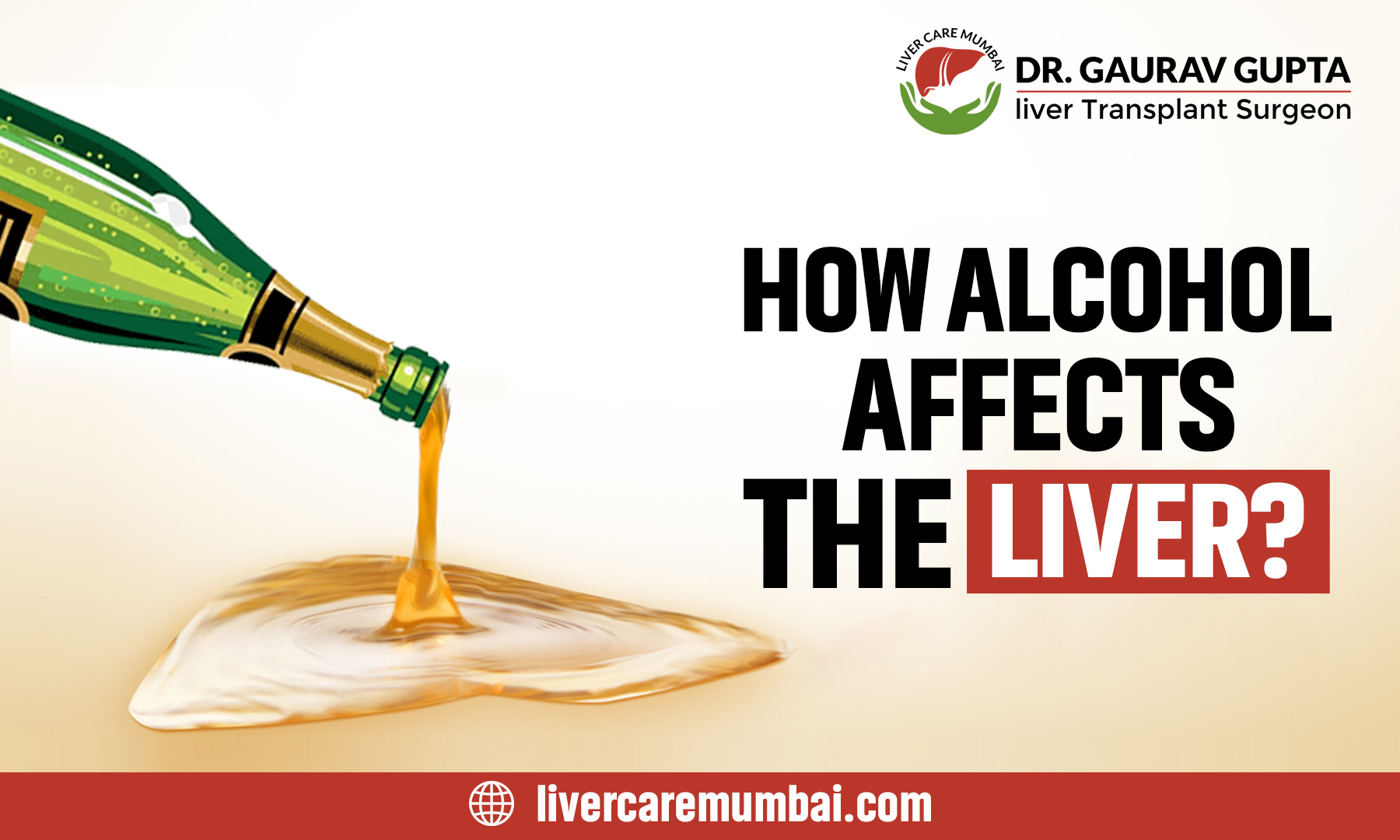How alcohol affects the Liver?
 Alcohol consumption is a common practice in many cultures around the world, but excessive and prolonged alcohol intake can have a detrimental effect on liver health. The liver is responsible for processing alcohol and breaking it down into harmless by products that can be eliminated from the body. However, when alcohol consumption exceeds the liver’s capacity to process it, it can lead to liver damage and other health complications. In this blog, we will discuss how alcohol is processed by the liver and how it affects liver health.
Alcohol consumption is a common practice in many cultures around the world, but excessive and prolonged alcohol intake can have a detrimental effect on liver health. The liver is responsible for processing alcohol and breaking it down into harmless by products that can be eliminated from the body. However, when alcohol consumption exceeds the liver’s capacity to process it, it can lead to liver damage and other health complications. In this blog, we will discuss how alcohol is processed by the liver and how it affects liver health.
Alcohol Metabolism in the Liver
When alcohol is consumed, it enters the bloodstream and is transported to the liver. The liver is the primary organ responsible for metabolizing alcohol in the body. The liver breaks down alcohol through a two-step process.
- The first step involves the enzyme alcohol dehydrogenase (ADH), which converts alcohol into acetaldehyde, a toxic compound that can damage liver cells and other tissues.
- The second step involves the enzyme acetaldehyde dehydrogenase (ALDH), which converts acetaldehyde into acetate, a harmless by product that can be eliminated from the body.
However, excessive alcohol consumption can overwhelm the liver’s capacity to process alcohol, leading to a build up of acetaldehyde in the body. This can cause liver damage and inflammation, as well as other health complications such as fatty liver disease, alcoholic hepatitis, and cirrhosis.
Effects of Alcohol on Liver Health
Alcohol can have a range of negative effects on liver health, depending on the amount and duration of alcohol consumption. Here are some of the ways alcohol affects the liver:
Fatty liver disease: Excessive alcohol consumption can lead to the accumulation of fat in liver cells, which can impair liver function and lead to liver damage.
Alcoholic hepatitis: This condition is caused by inflammation of the liver due to excessive alcohol consumption. Symptoms may include fever, jaundice, and abdominal pain.
Cirrhosis: Prolonged and excessive alcohol consumption can lead to the development of cirrhosis, a chronic condition in which liver tissue is replaced by scar tissue. This can impair liver function and lead to liver failure.
Liver cancer: Heavy and prolonged alcohol consumption is a risk factor for liver cancer, particularly in people who have underlying liver disease.
Prevention and Treatment
The best way to prevent alcohol-related liver damage is to limit alcohol consumption. The National Institute on Alcohol Abuse and Alcoholism (NIAAA) recommends that men should not exceed more than four drinks per day, and women should not exceed more than three drinks per day. It is also recommended to have at least two alcohol-free days per week.
If you are already experiencing alcohol-related liver damage, treatment options may include lifestyle modifications such as reducing alcohol consumption, following a healthy diet, and exercising regularly. In severe cases, medication or liver transplantation may be necessary.
The liver is responsible for processing alcohol and breaking it down into harmless by products. However, excessive and prolonged alcohol consumption can lead to liver damage and other health complications. It is important to limit alcohol consumption to prevent liver damage and consult a Liver Specialist in Mumbai if you experience any symptoms of alcohol-related liver disease.

